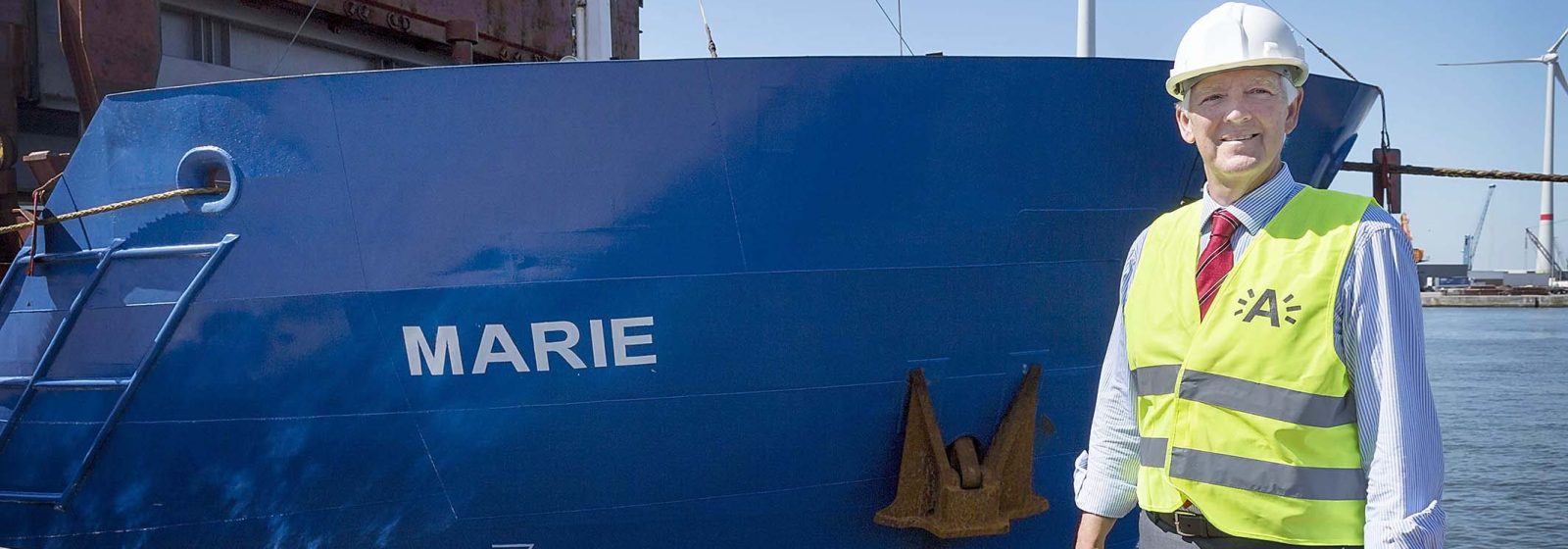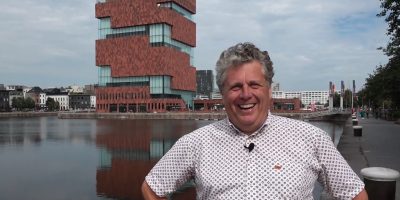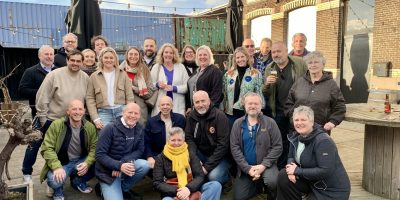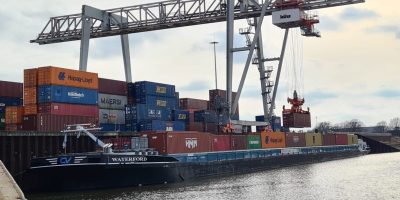
Flows awarded Anthony Durot with its Lifetime Achievement Award in 2022. Durot was at the helm of Antwerp shipping company Boeckmans for decades. After a 51-year career, he is enjoying a well-deserved retirement. In the recent Flows magazine, he shines his light on the challenges facing the port of Antwerp.
The fourth-generation family business Boeckmans has grown into a fixture in Antwerp shipping. The company operates at various levels such as agency, logistics, ship chartering and shipping. “In more than 50 years, a lot has changed in the port of Antwerp. When I joined my father at Boeckmans in July 1977, there was a big shift from the breakbulk to the container segment,” says Anthony Durot, former director of Boeckmans. “To serve this growing container market, ship loading and unloading operations moved from the Scheldt quays to the port area behind the locks. Antwerp’s first large container terminals such as Hessenatie, Noord Natie and Westerlund rose from the ground. They were located at Antwerp’s first container dock, the Churchill dock.”
Bruyninckx
In the 1970s, the port of Antwerp was still a municipal port authority and therefore had no commercial interests. According to Durot, a breakthrough in port growth came with the appointment of former Antwerp Port Authority director-general Eddy Bruyninckx in 1992. “Under his leadership, the port authority was privatised. He succeeded well. The whole port community benefited,” he says. “His particular merit is that he prepared Antwerp for today’s container traffic.”
Bruyninckx helped build Antwerp into Europe’s second largest container port. Because he gave priority to containers, the breakbulk segment was treated “stepmotherly”. “That’s regrettable, but I don’t blame him,” says Durot. “He was not given unlimited credit and had to make a choice. Even the big stowaways saw more future in the container market.”
Continue reading below the picture.

Merger
The port of Antwerp reached a new high by merging with Zeebrugge in April 2022. “That is a beautiful realisation that has been a long time coming. The thinking in the industry about a merger used to be completely different,” he says. “Apart from Fernand Huts (top executive of Katoen Natie, ed.), who argued for a big Flemish port in his 1980s book, there were few advocates of a cooperation between the coastal port of Zeebrugge, Antwerp and also Ghent. Many in the industry saw other Flemish seaports as competitors, whereas we are complementary. The merger is a particularly good thing. “To keep the merged port future-proof and competitive, certain things must not be lost sight of. “Antwerp has lost large traffics of general cargo such as steel, paper, pulp but also fruit to Flushing. This is due to a shorter transit time between the sea and the port, but also to the cheaper handling costs of goods,” Durot points out.
Port labour
According to him, a reorganisation of port labour offers opportunities. “You can reduce costs by modernising working conditions,” he says. “The unions in Antwerp cling too much to traditions. In Zeebrugge or Flushing, the working methodologies are more flexible.”
“The maritime accessibility of the port of Antwerp is also often compromised because of the organisation of the Pilotage Corps,” he continues. “The Flemish Pilotage Corps consists of sea, river and dock pilots and should work as one. Unfortunately, too many traditions or ‘holy chapels’ are maintained. Trade union instability also needs to be resolved. Strikes by pilots show corporatist reflexes. It cannot be that ships are denied pilotage when pilots strike.”
Customs
“AEO-certified companies (companies that meet the status of ‘Authorised Economic Operator’ are seen as trustworthy by customs, ed.) should enjoy even more trust from the Customs and Excise Administration,” Durot said. “I recognise the importance of customs and realise that they have a difficult job in the fight against drug crime and fraud, but cooperation between different stakeholders in the port should be encouraged. Customs should go less down the road of fines for administrative errors and focus more on fighting counterfeiting. Fraud cases inevitably involve acts that are prosecuted correctionally. That all errors are dealt with at the correctional level is unacceptable and creates needless drama. This shows that there is work to be done to reform customs regulations.”
Ahead
He reiterates the importance of association life in the logistics sector. “The professional federations play an important role. It is necessary to all work together for an even stronger port. I hope there will be solutions to the current challenges and that we can move forward. This can only benefit the new generations operating in the port of Antwerp,” he concludes.




